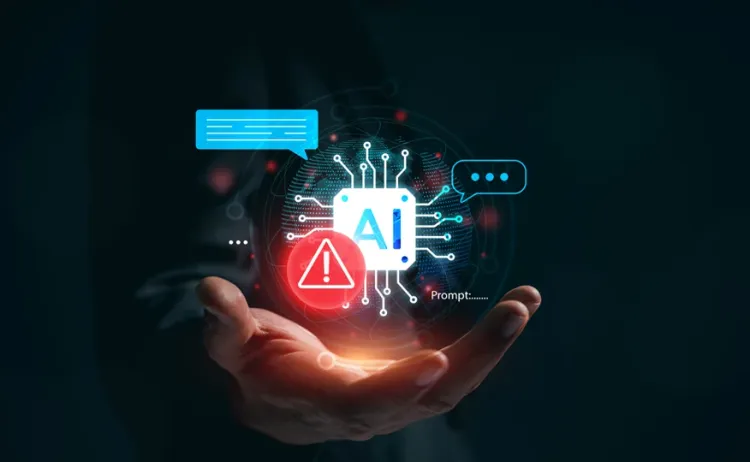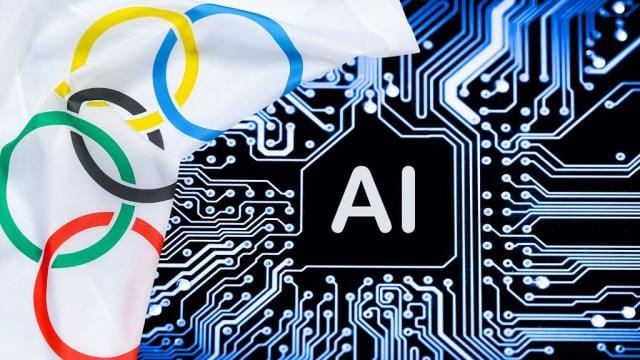AI Takes the Spotlight in 2024 Paris Olympics

The Olympic torch has been lit, and the games are on. In this year's edition of the Olympics, over 11,000 players compete in 329 events across 32 sports. The athletes come from the territories of all 206 National Olympic Committees, with the addition of the IOC Refugee Olympic Team. Although sports and friendly competition dominate the conversations, AI or Artificial Intelligence is also getting is fair share of attention.
Artificial Intelligence (AI) is no longer just a flashy buzzword, and a technology talked about in small tech circles. It's slowly integrated in every aspect of our lives, and changing the way we work and get entertainment. AI's popularity hasn't gone unnoticed; it has arrived at the 2024 Paris Olympics and it's currently changing the how we enjoy our favorite sporting events. In this article, we'll talk about the different ways AI is changing the Olympics and sporting landscape.
Ask AthleteGPT
Intel has partnered with the International Olympic Committee (IOC), to offer a sports-themed AI solution, making the technology more accessible to players, guests, and other Olympic participants. Intel's Athlete365 Platform aims to provide athletes with information on how to navigate the games with confidence. The developers understand that these athletes come with different languages and cultures, and that they need to navigate the games and its rules. As a response, Intel develops its chatbot, AthleteGPT, integrated with the Athlete365 platform.
The chatbot is backed by the RAG solution that's powered by Intel Gaudi accelerators and processors, and designed to handle athlete inquiries and interactions, and provide users with on-demand information.
Like the ChatGPT, users can type in different types of questions and generate quick answers conversationally. For example, athletes can ask the schedule of games, or the winners of previous matches. In an online demonstration with reporters, the developers the fast response rate of the chatbot when asked if posting photographs from Olympic venues is allowed during the games.
In addition to its fast response, the chatbot also included a reminder that posting photos on social media accounts and personal websites are allowed, provided that they don't share or include commercial content. The answer also includes warnings not to include AI-generated content or recordings captured from restricted areas.
According to Justin Hotard, the Intel executive vice president and general manager of the Data Center and Artificial Intelligence Group, the development of its Athlete365 platform is their way to make AI more accessible. He added that they are " fostering an open playing field that encourages innovation and creativity and enables developers and enterprises to build tailored AI solutions that drive tangible results".
Athletes, participants, and guests can check out the chatbot at Intel's stand, which also boasts another facility that lets guests test which sports their bodies are best suited to.
The addition of Intel's chatbot will serve as a great addition to the IOC's facilities. Intel aims to improve the communications within the Olympic village as it uses six major languages that 11,000 athletes in the city can access.
Track scores and get Olympic news and information on-demand

If there's an AI tool for athletes, there are also a few AI tools and models in action at the Paris Olympics that serve the fans and viewers. For example, spectators and fans from afar can still get updates on the latest scores and developments through the AI highlights feature. Traditionally, these games and activities highlights are done manually through tagging and clipping. Now, the organizers use AI to offer create creative renderings of updates and reports.
There's Intel's Automatic Highlights Generation system that captures the key sporting moments in different events and sports. This technology was trained on Olympic archive videos which can be customized to reflect the needs of different broadcasters and users.
As mentioned, Intel partners with the IOC to bring the Olympic experience to fans and spectators. One of the Intel products on the stadium puts the individual on a journey to become an Olympic athlete. This app is trained on several Intel technologies in cooperation with Samsung and uses AI and computer vision to analyze athletic drills and match each person's profile to an Olympic sport.
NBC's Peacock app in action
Aside from Intel, NBC is also leveraging AI and emerging technologies to deliver news content and Olympic updates. The cable channel launched its Peacock app ahead of the Olympics, and it's designed to provide a 10-minute highlight playlist daily that fit the user's sporting preference. The app recreates the voice of Al Michaels, a legendary American sports broadcaster with decades' worth of experience.
According to the company's press release, the content will be delivered each morning. The content is a video summary of the channel's last day of coverage that's built out of sporting clips and high-quality recreation of Al Michael's voice. NBCs says that they expect nearly seven million personalized variations of "Your Daily Olympic Recap on Peacock", and available for streaming across the US.
Many critics say that generative AI isn't perfect, and it can also produce incorrect results. With these challenges in mind, NBC has assured the sporting and general public that it works with a team of NBC sports editors that will review all content, including audio and video clips for accuracy and qualify before these are made available to the users.
OMEGA's long tradition of timekeeping, now backed by AI
The use of AI also extends to timekeeping, which is a crucial component of the Olympics. In Paris games, the IOC works again with Omega and this time, the company is providing AI-powered tools to deliver accurate time. Omega has already used AI tools for timekeeping in Tokyo Olympics, particularly in volleyball.
This year in Paris, Omega is back with its timekeeping traditions, with improved AI tools. According to the Olympics page, Omega will use intelligent stroboscopic analysis across athletics, diving, and artistic gymnastics to allow viewers and fans to appreciate the movements of athletes.
In diving, Omega and OBS will also use AI to generate enhanced data graphics, generating a new set of data on each athlete's performance in the air and when entering water. There's also an AI-based motion tracking technology that can help viewers and commentators keep track of the athletes' positions during sprint, walks, and swimming.
The AI technology is here to stay, and it's also changing the landscape of sports and the Olympics. What's interesting with this technology is that developers and companies understand the limits and pitfalls of generative AI, so they're always innovating to including guardrails and adding a few extras to create a truly exciting and beneficial technology.




